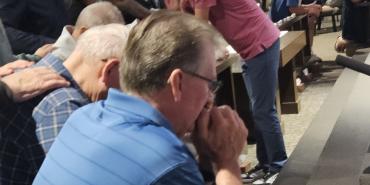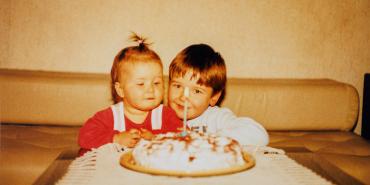Celebrating Diversity

"What does diversity mean from the perspective of holiness theology?" This question caught my attention when I attended the Global Theology Conference in the Netherlands in April 2007. The theme focused on unity and diversity, and this question arose during a plenary discussion.
It is easy to point towards perfect love, one of John Wesley's favorite phrases. Love surely lets us maintain unity within diversity. Yet that seems to only scratch the surface. By nature, we tend to associate with people who are more or less like us—who think like us, talk like us, behave like us, look like us. We don't feel comfortable with people who make us feel different. And we love the recognition we get from others. Well, I do at least.
As I walked around at the conference, several people greeted me. That felt great—I was part of the family! We Nazarenes are good at that. When you fit in, you really fit in. You can enjoy a sense of belonging. The same thing happens in the local church at the potluck dinners, at camp meetings, at district events, and of course at general assembly, where we meet old friends we may not have seen in years. Nothing is wrong with this—we are family! In fact, we are even more, as the Bible says we are the body of Christ. How's that for closeness? This kind of unity is good.
So what does this holiness mean when it comes to diversity?
Our articles of faith say that entire sanctification is preceded by entire consecration (Manual, 35). Paul, in one of the most beautiful descriptions of a holy life, wrote in Galatians 2:20, "I have been crucified with Christ and I no longer live, but Christ lives in me. The life I live in the body, I live by faith in the Son of God, who loved me and gave himself for me." Why is it that Paul no longer lives, but Christ lives in him? Why this entire consecration? His answer is clear: because of "the Son of God, who loved me and gave himself for me." That is what gave him a new identity. No longer seeking recognition. No longer looking for those who were like him to make him feel comfortable. Paul's basic identity—his self worth and value—was defined by the One who loved him enough to die for him. Of course, that love was not for him alone, "for God so loved the whole world" that He gave himself for all of us (John 3:16).
The essential starting point is the love God has for each of us. As long as we are not thoroughly convinced of this love, we will fear diversity. Until we have been permeated by the reality of God's amazing love, we still build our identity on others. And other people, even the most wonderful, will fail us eventually, if only by death. There simply is no other foundation for our being, our identity, than the love of God in Christ. Perhaps that's why the late Henri Nouwen was fond of calling us, "God's beloved."
So, we may embrace diversity. God created us that way! He intended His body to be diverse. He intends for us not to feel threatened by that diversity, but to celebrate it, knowing that whether people will recognize us or not, praise us or talk behind our backs, Christ who lives in us defines our identity. This fact frees us to share the love of Christ with others. Now that is holiness.
Hans Deventer is a lay minister on the Netherlands District.
Holiness Today, January/February 2008
Please note: This article was originally published in 2008. All facts, figures, and titles were accurate to the best of our knowledge at that time but may have since changed.




